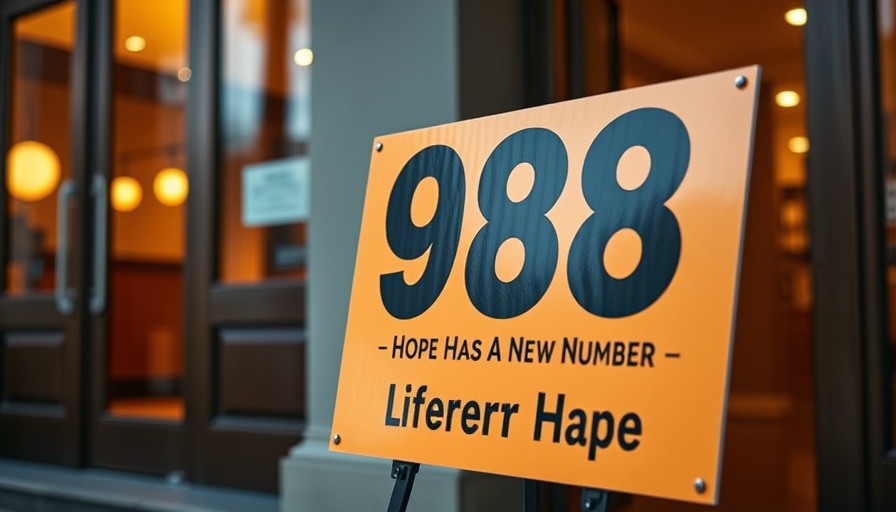
The End of Specialized Support for LGBTQ+ Youth
This week marked a significant and concerning turn of events for LGBTQ+ youth seeking mental health support in the United States. The Trump administration has announced the termination of the 'Press 3' option within the 988 Suicide and Crisis Lifeline, a specialized service that connected young individuals in the LGBTQ+ community to counselors trained to understand their unique challenges. After three years of operation, this decision raises urgent questions about the accessibility of mental health services for a demographic that is already facing distressing levels of mental health challenges compared to their peers.
Understanding the Impact on LGBTQ+ Youth
LGBTQ+ youth encounter higher rates of bullying, discrimination, and family rejection, leading to increased feelings of hopelessness and a risk of suicide. According to the Centers for Disease Control and Prevention, surveys indicate that these individuals are more likely to experience severe mental health issues. The 'Press 3' option provided a direct line to support from professionals who understood these unique experiences, offering a lifeline to many in crisis.
Rise in Demand for LGBTQ+ Services
Since its inception, the specialized service saw a remarkable increase in utilization, with contacts growing from just 2,000 per month in September 2022 to nearly 70,000 in the months leading up to the change. This rising demand underscores the need for tailored support, which aligns with previous studies showing the significant impact of stigma and discrimination on the mental health of LGBTQ+ individuals.
Funding Issues and Government Stance
The official reason cited for this cessation is the depletion of congressionally directed funding. Despite more than $33 million allocated for LGBTQ+ services, the administration has indicated a shift in focus—one that, according to Mark Henson from The Trevor Project, fails to recognize the specialized needs of LGBTQ+ youth. The federal government's stance suggests a new direction emphasizing integration over specific support, which may inadvertently neglect the unique challenges faced by this vulnerable group.
Comparing with Other Specialized Services
The decision stands in contrast to other tailored support services within 988, such as those available for veterans. Veterans, experiencing unique challenges associated with military service, have a dedicated service option by pressing '1' when they call 988. This differentiation raises important questions about why LGBTQ+ youth, who are also at a high risk of suicide, do not receive similar specialized attention.
What Does This Mean for Future Mental Health Initiatives?
This shift may fundamentally alter how LGBTQ+ youth seek help through national crisis services. Advocates argue that without a dedicated support system, many will struggle to access help. As this demographic continues to face alarming mental health disparities, the urgency for comprehensive and inclusive mental health services has never been clearer. Future initiatives must address these issues head-on to ensure that no vulnerable group is left without support.
Moving Forward: Advocacy for Inclusion
As stakeholders in the mental health and advocacy sectors rally to call attention to these changes, it is crucial for community leaders and policymakers to advocate for reinstating specialized services for LGBTQ+ youth. Their unique challenges require understanding and empathy that only trained counselors can provide. Without such advocacy, the mental health of an already vulnerable population could be at significant risk.
Conclusion
In conclusion, the cessation of the 988 Lifeline's specialized service for LGBTQ+ youth is a pivotal moment that underscores the ongoing challenges faced by this community. Community support and advocacy remain crucial in ensuring that these individuals receive the help they need. It is essential that all voices, especially those of LGBTQ+ youth, are considered in future mental health strategies. Engage with local organizations and advocate for policies that support mental health equality for all.
 Add Row
Add Row  Add
Add 




Write A Comment